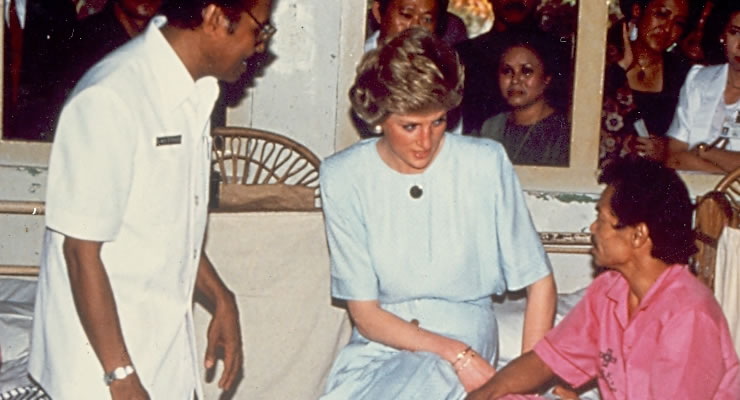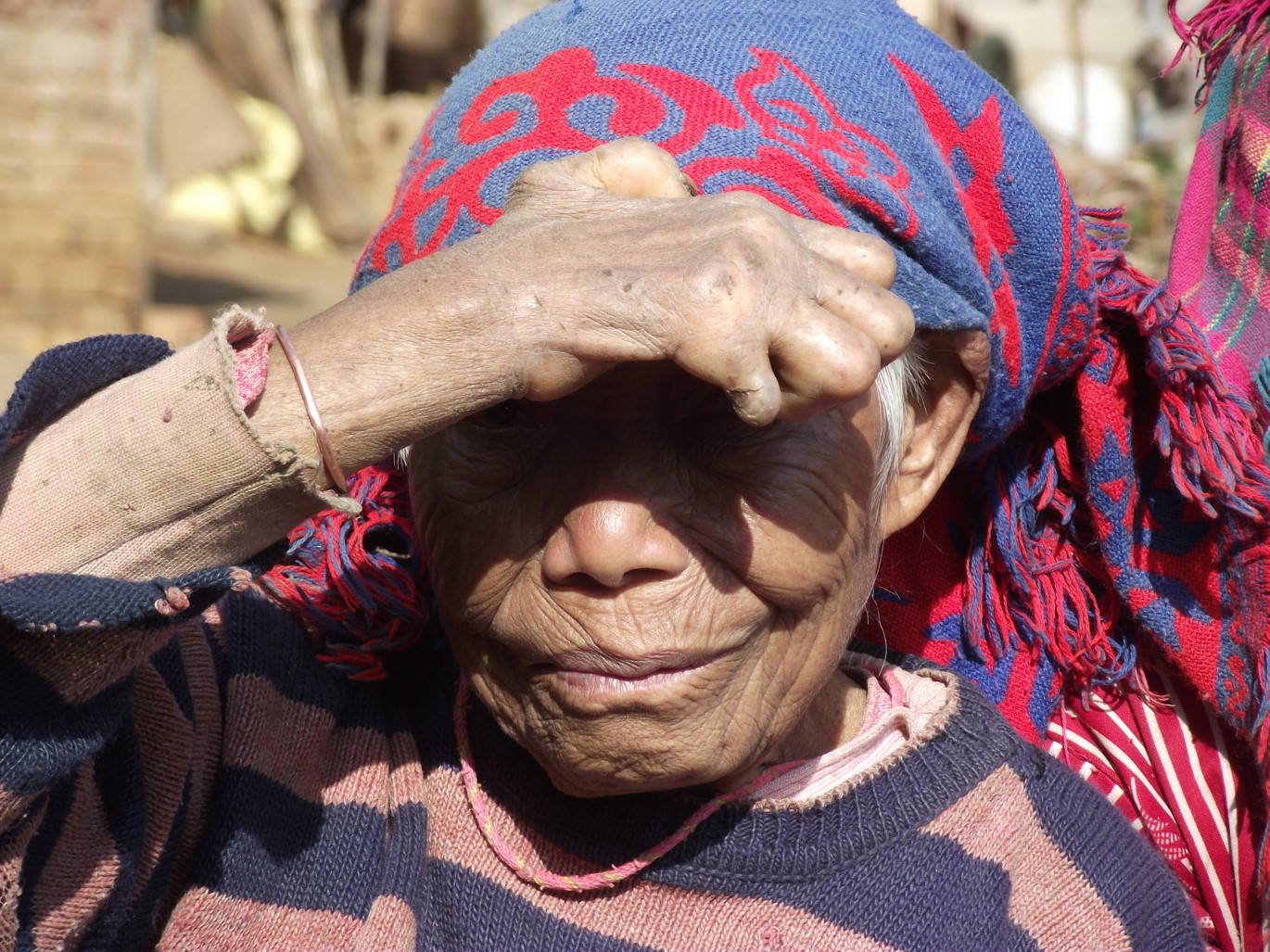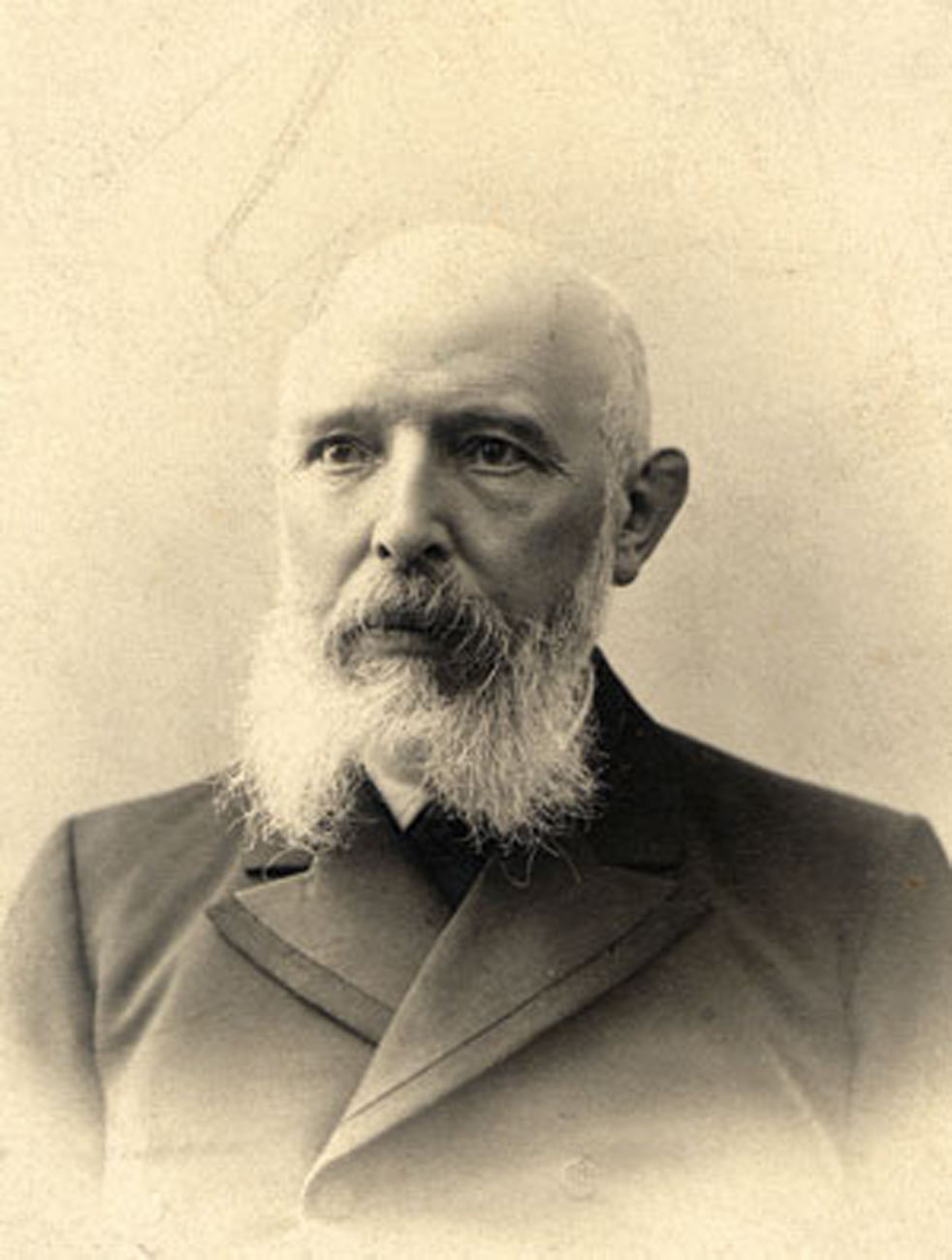Is it infectious?
Mildly. Hard to catch, and certainly not with a handshake, especially through objects affected by leprosy. These are ancient misconceptions, they have no basis. Only about 5% of humanity catches leprosy, 95% are immune to the leprosy pathogen. Leprosy patients should not be feared, but loved. It is just one disease among many.
Diana, Princess of Wales, the late patroness of the English Leprosy Society, did a great service to combat prejudice and misconceptions by visiting many leprosy hospitals, sitting down with the patients, holding their hands and proclaiming to the world: there is no need to fear leprosy.

Diana, Princess of Wales in Anandaban, Nepal, at a hospital of the International Leprosy Federation.
Would we catch leprosy if we were among the sick?
No. Firstly, because the medicine stops the infection in the body within 24 hours, so the 'patient' next to you is no longer infected.
On the other hand, 95% of humanity is naturally immune to this disease. Only our fellow human beings living in the deepest poverty, malnutrition and unclean conditions are at risk from leprosy, just like TB and many other diseases and infections.
Once the risk factors (poverty, malnutrition, bad drinking water) are addressed, leprosy almost "disappears" in an area. Today, South Korea, Bhutan, Thailand in Asia, and Ukraine and Romania in Europe are welcome examples. In these countries, there were still leprosy patients and leprosy hospitals 20 years ago. However with the general rise in living standards, the disease has simply disappeared. Therefore, the fight against leprosy is the same as the fight against poverty.
Is it hereditary?
Leprosy is not hereditary, but an acquired disease. Parents with leprosy have healthy children. This is why it is particularly cruel to stigmatise and exclude.
Is it a terminal illness?
No. No one dies of leprosy.
How long does it take to develop?
The incubation period is very long: up to 20 years.
Can leprosy be prevented?
Leprosy is now curable, but not yet preventable. There is still no vaccine against leprosy, although scientists around the world are working hard to for it. The International Leprosy Federation also has a major research programme. Leprosy can actually be effectively prevented by eradicating abject poverty and misery, and by achieving a minimum of healthy living conditions.




